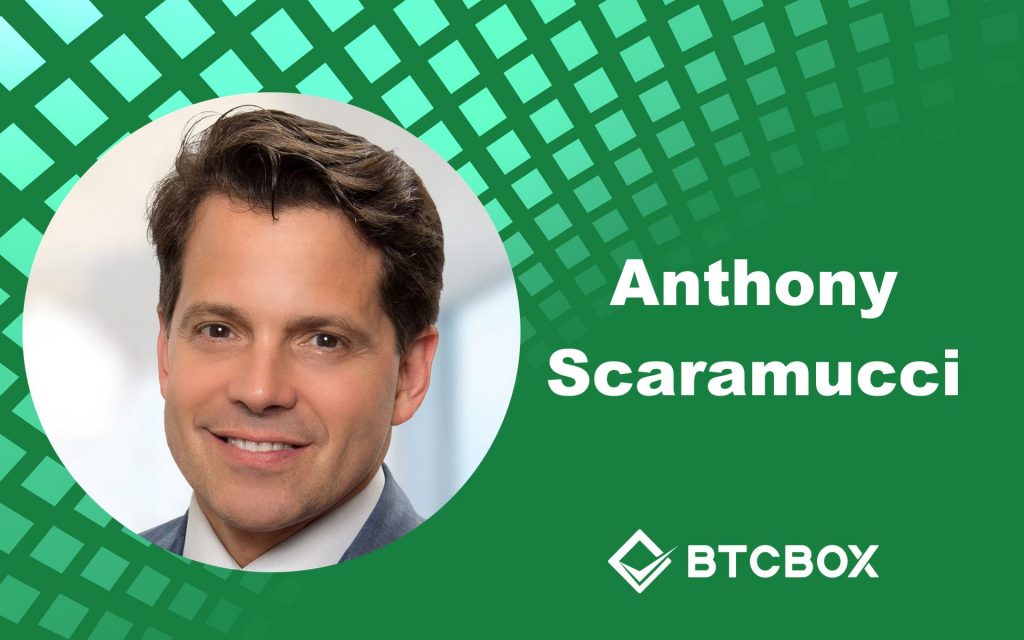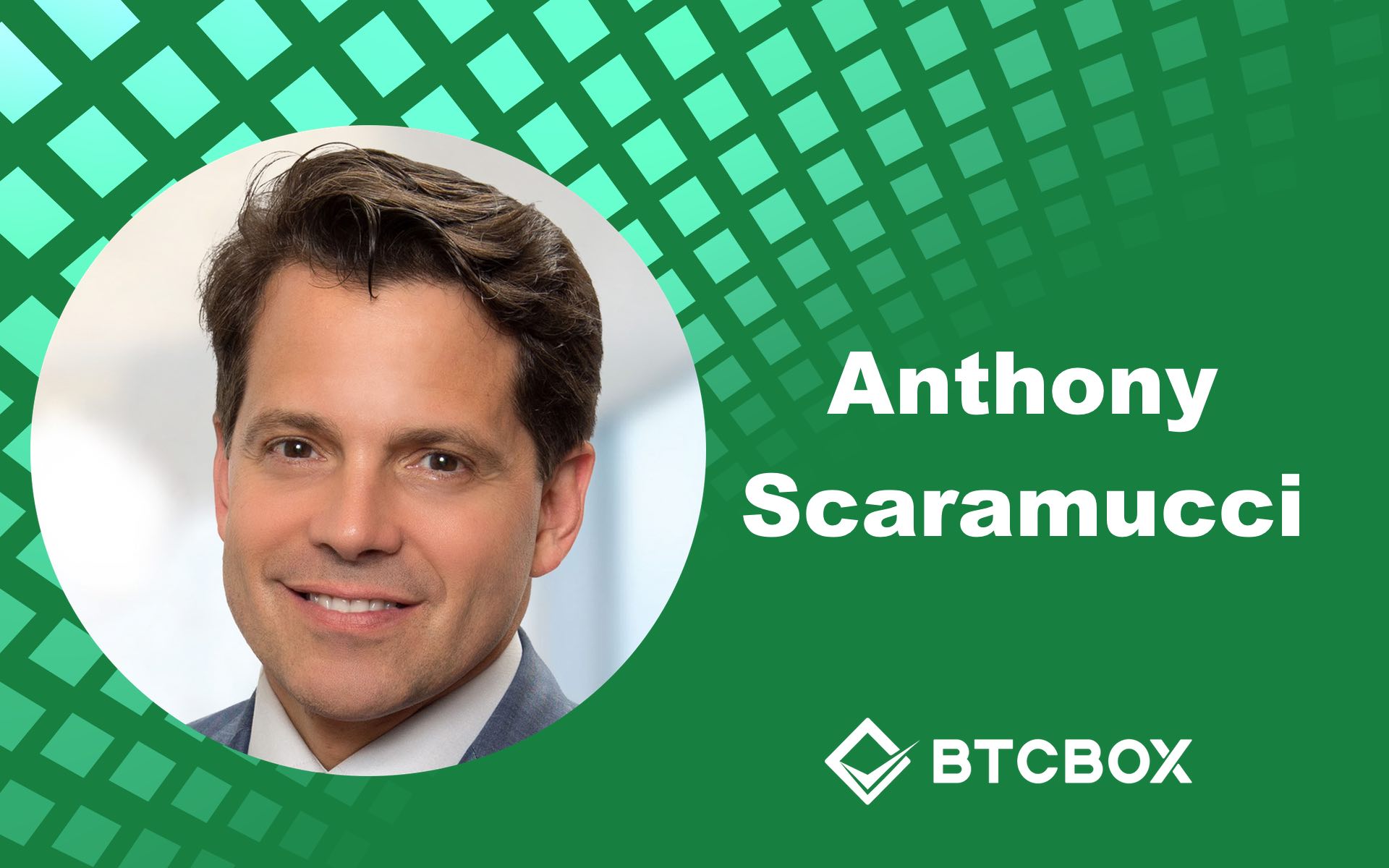
Anthony Scaramucci is the Founder and Managing Partner of SkyBridge Capital, an alternative investment firm with around $10 billion in assets under management. He is the author of three books: The Little Book of Hedge Funds, Goodbye Gordon Gekko, and Hopping Over the Rabbit Hole, a 2016 Wall Street Journal best-seller. For the last 33 years, he has been on Wall Street, and the last 16 years with SkyBridge, founded in 2005. For a short period of time, Scaramucci was president Trump’s Communication Director in July 2017.
Interview Date : 3rd February 2021
How is the concept of money changing today?
I think we have another technological innovation that’s taking place with respect to money and the transfer of value today. If you stop and really understand what money is, you look back over 5500 years of our recorded history of money, humans have made decisions that we would be trading something like an object, for example, a gold coin that may have the profile of a political leader on it, a piece of paper that is stamped and approved by the federal government, seashells, etc. Throughout history, there has been a token, if you will, that we would trade with each other to express value. Furthermore, the money you use for trade is worth less than the goods and services that you are trading for. I can pull out green sheets of fabric that are cut a certain way by the government, and that’s my money decided by authorities. People will accept that to allow me to eat a pizza they just made or a plumber may accept that to fix something in my house, etc. So, money works as a ledger between people in society.
How is digital money and Bitcoin different?
In 2009, after a few failed starts, there was DigiCash and a few other types of digitized currencies, Bitcoin seemed to have come on to the scene with an evolved strategy. it would effectively be Google to Lycos or Facebook to Myspace. Satoshi Nakamoto, whether it’s a or a group of people, the reason why he or the organization decided to stay anonymous is to further the culture around Bitcoin of it being decentralized. Over Bitcoin’s open-sourced feature, the cryptography on the blockchain is impenetrable. He also made the decision to fix the supply of coins to 21 million. It is transferable, and safety-sealed in order not to be stolen, and it has risen to be an acceptable ledger and acceptable currency between people to transfer value over the last 10-12 years.
Now there are many other cryptocurrencies, but bitcoin has defeated those and has emerged as the industry leader. It has a market capitalization of about 650 billion dollars and if we are correct in our assumptions, every day that it stays in its existence and further proves its concept, we think that bitcoin can become a store of value akin to gold. With this prediction, we launched a Bitcoin fund in December 2020 and opened it up for investors in January. The second thing that we are doing is reporting the Bitcoin we have in hand across our asset classes, so we have about 500 million dollars in Bitcoin right now, which we are super excited about.
How is your view on Bitcoin different from Bitcoin evangelists?
I appreciate and admire the Bitcoin evangelists, and I think where they are coming from is the blockchain side, and are fascinated by the uniqueness of the cryptography of Bitcoin. It makes things very secure over the internet in terms of the way things are cross-referencing checked. So, I understand why there is such high evangelism for that, and in some ways, we are evangelists because of belief in that theory and in the exponential growth of its monetary network. However, I am looking at Bitcoin as an asset class that I’m going to appreciate, and I am buying it for my clients because I believe these things are massively undervalued, and that’s it. Gold has a 12 trillion-dollar market capitalization, and if we are correct about Bitcoin, it will trade 15 times more than gold. Even if we are not 100% correct, and it only has 50% of growth potential, that is still 7 times a move. For those reasons, we are very excited about it and about its potential outcome.
What did Robinhood do wrong?
I know a lot about the recent Robinhood incident. I have been on Wall Street for 33 years, so one of the first things I learned at Goldman Sachs is how trades settle, what the margin requirements are for, etc. There is a regulatory body called the DTC, Depository Trust Corporation, which handles the flow of trading and the clearing of trades for the international marketplace, but specifically Wall Street. When trades were going on in GameStop around the last week of January 2021, this was what happened: let’s say I buy the stock for 50 dollars, and after a while, the stock price goes to 75 dollars, so I ask Robinhood for a margin to buy more stock with it. Then the stock price goes up even more, and I buy even more stock with that margin, and you could be in a situation where Robinhood is lending 250 dollars per share on GameStop. GameStop was trading at 500 Dollars per stock, but look at what happened to it in the past couple of weeks: it went from higher 500s to 100s. In a situation like that, Robinhood would be at risk because they lend all this money to those people who were buying it on margin. Now, let’s say the stock is traded to zero, and there is no collateral left in the account to pay back the loan that people got from Robinhood. So you had a situation where Robinhood made a decision to stop the trading on those accounts or blanked a few names that can no longer trade anymore. People got furious at them saying Robinhood is supposed to be there for the little guy, but they are hurting the little guy now.
What was Robinhood’s intention behind the GameStop incident?
However, it wasn’t about that. Robinhood had certain regulatory capital requirements that it needed to fulfill, and it frankly didn’t have the money to meet those capital requirements. It was the Depository Trust Corporation that shut them down. The CEO didn’t want to get into that whole faxed last week. I think he was fearful that it would cost him to lose business to banks because the banks have the ability to borrow money from the federal reserve with 0 interest rates because of their charter. Banks can just lean on the federal reserve for money to make those capital requirements. Robinhood would have to raise 3.4 billion dollars fairly quickly to make up for those capital requirements lost due to GameStop’s marginal investments if they wouldn’t have listened to the DTC. I am giving a long-winded answer but I think it’s important for people to understand it wasn’t Robinhood’s intention to cheat the little guy or to prevent the little guy from buying those names as much as it was their intention to stay in regulatory compliance. However, the regulator is responsible for regulating Robinhood. This would end in tears for retail investors as they are creating a mania about something that has very poor fundamentals, and they are also going up against very seasoned professional well-capitalized traders. You could see the bottom fall out of GameStop, AMC, some of these other names this week. It’s an interesting thing that’s going on now, I don’t predict it’s going to end anytime soon.
Is Robinhood a democratized marketplace?
When you talk about the democratization of capitalism, marketplace, or what was going on with the situation with GameStop and Robinhood, people would say that’s decentralized capitalism because the little guy is being empowered. One of the gifts that we have gotten from modern technology is every person is empowered to be a prop trader, meaning, every single person has costless trading through Robinhood, and access to instant information through their smartphones. However, when I started in this business in 1989, the Goldman Sachs proprietary trading desk was the one who had those damages but not the little guy. So, there has been a shift towards a democratized market.
How can we strive to succeed?
We have a tendency of trying to maintain the status quo in our lives and don’t make a lot of changes. However, you can tell with my background that I don’t have any problem with change. I like moving in a lot of different directions, and sometimes it has been a great success while other times I have had a bizmo and very public failures. However, truth be told if you are persistent, take yourself seriously and get back to work, you will succeed in life. I looked at Bitcoin 3-4 years ago and I was skeptical, and it took me a while to get my arms around it. I think that’s a sign of neuroplasticity, meaning, a sign of being able to learn and engage, which is very important. I would like to encourage people, especially young people, to go and do that for themselves.
Interviewer , Editor : Lina Kamada
【Disclaimer】
The Article published on this our Homepage are only for the purpose of providing information. This is not intended as a solicitation for cryptocurrency trading. Also, this article is the author’s personal opinions, and this does not represent opinion for the Company BTCBOX co.,Ltd.


